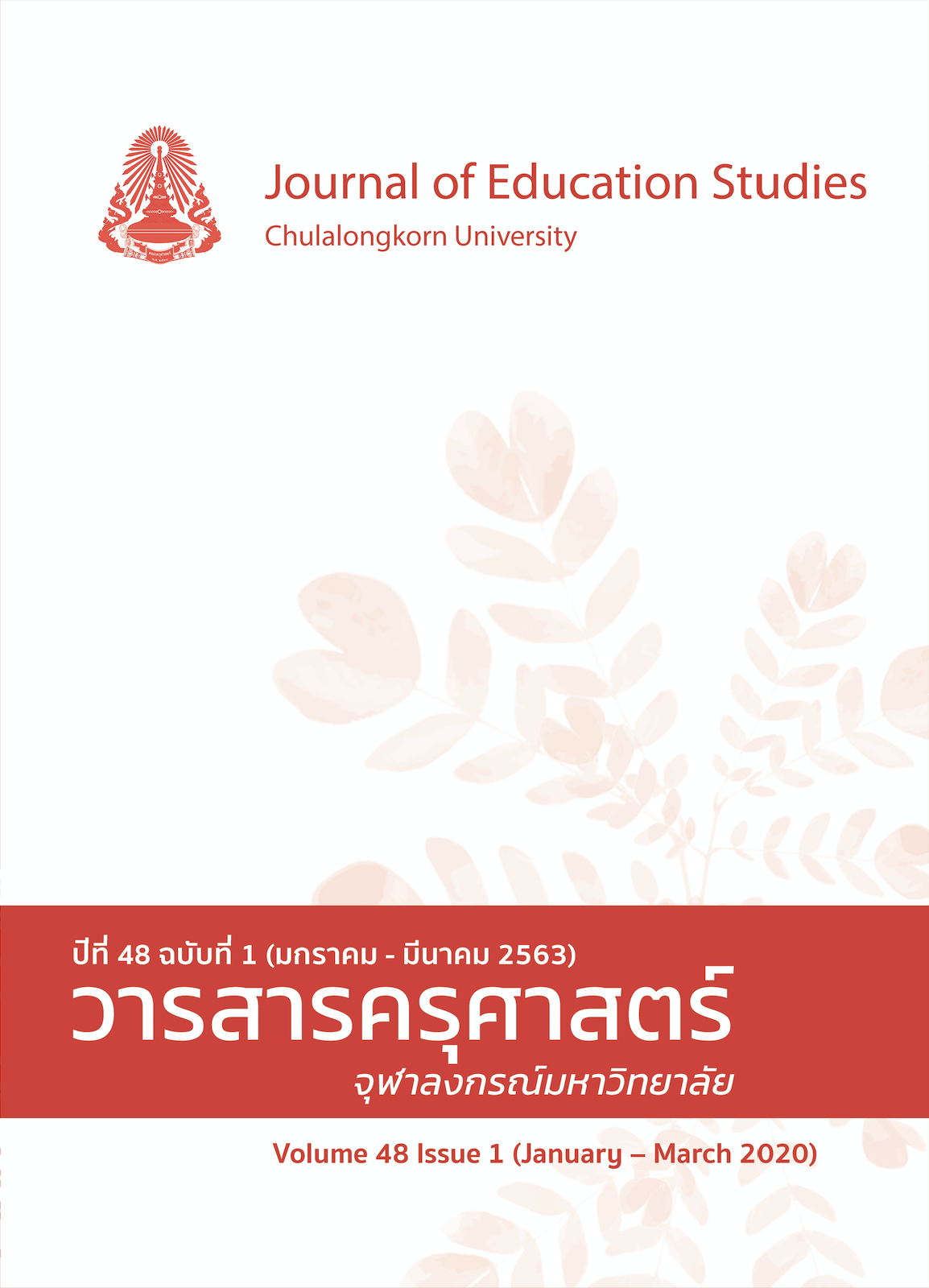Policy Alternatives for Promoting Participatory Integrated Student Care System
DOI:
https://doi.org/10.14456/educu.2020.71Keywords:
participatory integrated, student care system, policy alternativesAbstract
Objectives of this research are: 1) to study participatory integrated student care systems; 2) to study good practice of participatory integrated student care systems; and 3) to propose policy alternatives for promoting participatory integrated student care systems. Through a mixed method research, the researcher used a survey to collect data from school teachers. The survey was used to analyze current conditions and problems of student care systems. Then, the researcher investigated good models of participatory integrated student care systems by interviewing school teachers. The research findings show that 1) the current conditions and problems of student care systems that need to be solved relate to organizational structure, personnel, understanding of student care systems, and budget. 2) The good models for promoting participatory integrated student care systems can be achieved by undertaking two cooperative strategies: the cooperative coordination of all related personnel, and enhancing the cooperation of schools’ management committees. 3) The researcher also proposes seven policy alternatives to promote participatory integrated student care systems, namely (i) restructuring human resources based on school needs, (ii) enhancing understanding and knowledge related to student care systems, (iii) promoting the continuity of the schools’ student care systems, (iv) improving monitoring and follow-up systems, (v) reviewing the recruitment process, (vi) enhancing local financial support, and (vii) developing health care system coverage to include mental health related issues.
Downloads
Published
How to Cite
Issue
Section
License

This work is licensed under a Creative Commons Attribution-NonCommercial-NoDerivatives 4.0 International License.




